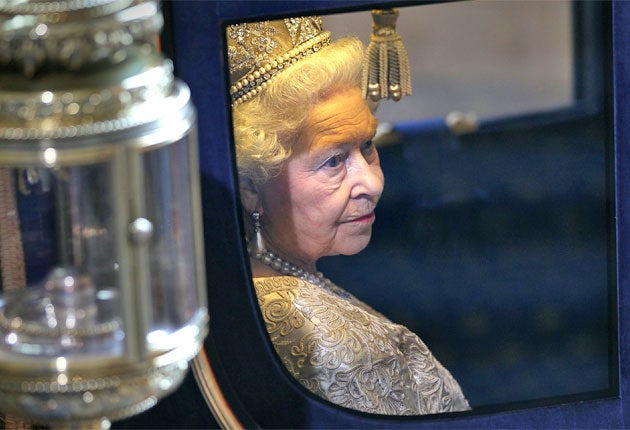Tories heartened by coalition's radical legislative programme

The Conservatives clawed back ground from the Liberal Democrats on policy yesterday as the coalition Government unveiled its programme of 22 proposed new laws to be introduced in the next 18 months.
Amid concern among Tory MPs that David Cameron has made too many concessions to Nick Clegg, the Tories sent reassuring signals to their backbench troops on electoral reform, capital gains tax and immigration.
The Queen's Speech left open the date of a referendum on a new voting system. The Liberal Democrats want it to be held next year but Tory sources suggested that it would have to wait until after the Boundary Commission has completed a review of parliamentary constituencies. This aims to reduce the constituencies, and give them each a similar number of voters. The review could take two years.
The Liberal Democrats want the rate of capital gains tax (CGT) increased from 18 per cent to 40 or 50 per cent, to match the top two rates of income tax. Last week's coalition agreement said the Government would "seek ways of taxing non-business capital gains at rates similar or close to those applied to income". Yesterday the Government watered that down, saying that capital gains would be "taxed at rates closer to those applied to income tax" – a sign that the Chancellor George Osborne may shy away from the Liberal Democrat plan in his Budget next month.
Last week's agreement did not put a figure on the number of immigrants from outside the European Union who would be allowed into Britain under the "cap" proposed by the Tories. Yesterday the Government said: "We will reduce net migration back to the levels of the 1990s – tens of thousands not hundreds of thousands."
The Queen read out a list of Bills drawn up by a coalition government for the first time in her 56 appearances at the State Opening of Parliament. She said they would be based on "freedom, fairness and responsibility".
Today Michael Gove, the Education Secretary, will publish a Bill to allow hundreds more schools, including primary and special schools, to become academies with freedom from local authorities. A Bill to scrap Labour's national identity scheme will be introduced tomorrow.
The speech revealed plans to revive an aborted Labour scheme to part-privatise the Royal Mail, which could provoke industrial action. Post offices will remain in public hands.
Mr Cameron hailed the package as a radical programme from a radical government that would offer the country "a new start". He promised major reforms to schools, police, welfare and the political system but said that cutting the £156bn public deficit remained the coalition's "first priority".
The Prime Minister told MPs: "This Queen's Speech marks an end to the years of recklessness and big government and the beginning of the years of responsibility and good government."
Mr Cameron said that Labour had left the country in an "appalling mess" with record debts and a ballooning public deficit. He attacked Labour for failing to apologise for its legacy, adding: "Until they learn what they got so badly wrong I'm not sure people are going to listen to them again."
The Tory leader said the new administration would offer "government not driven by party interest but by the national interest, with clear values at its heart".
Harriet Harman, Labour's acting leader, said the party would "not oppose for the sake of it" but neither would it "pull its punches". She said: "We will be determined to prevent unfairness. We will speak up for the public services that matter. We will be vigilant in protecting jobs and businesses." Probing the differences between the Tories and Liberal Democrats, Ms Harman said: "These coalition partners, lacking confidence in each other, are already preparing for the day when they shrink back from their loveless embrace. It's like a political pre-nup." She said Labour would oppose a plan to require a 55 per cent majority of MPs for a dissolution of Parliament to trigger a general election. She said it "would allow the Government to cling on to office having lost the support of the House".
Join our commenting forum
Join thought-provoking conversations, follow other Independent readers and see their replies
Comments
Bookmark popover
Removed from bookmarks